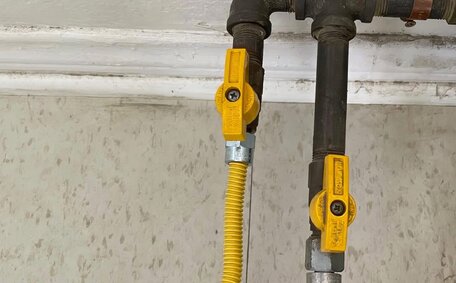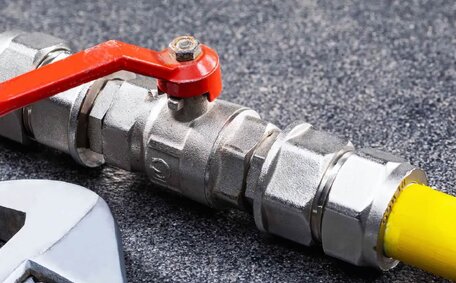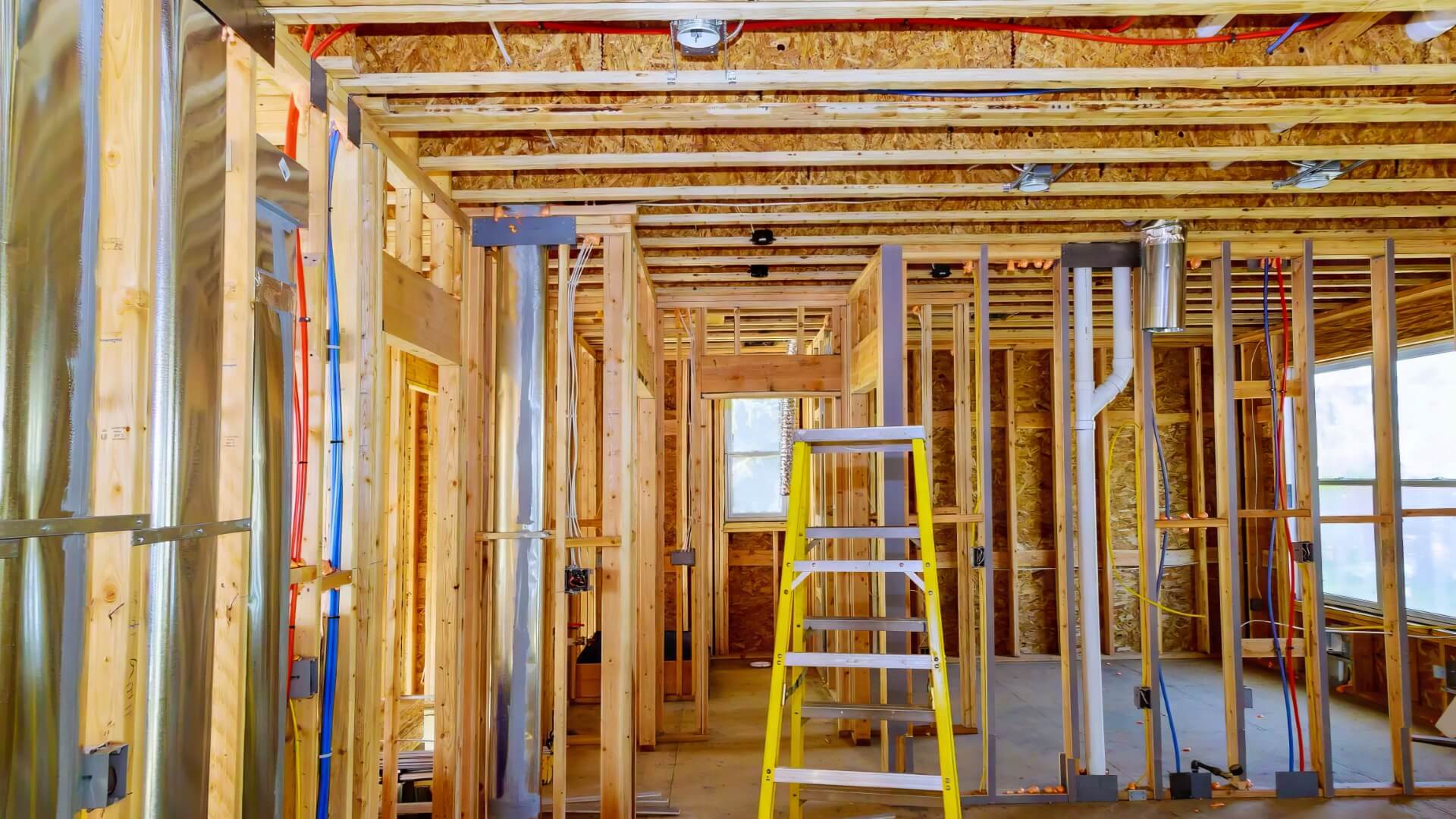
Natural Gas vs. Propane: What’s the Difference?
Propane and natural gas are popular fuel sources, but have different origins and properties. Propane delivers more BTUs per cubic foot. Natural gas is piped underground to homes.
Read MoreA hot water system requires proper water pressure for efficient function. Fluctuating or low water pressure can compromise hot water availability throughout your home. This guide will explore how water pressure affects hot water systems, investigate issues caused by low or high pressure, and provide solutions to restore optimal water pressure.
Residential hot water systems typically operate within a water pressure range of 240 to 550 kPa. If pressure drops too low, resulting in reduced or inconsistent flow, it can affect hot water supply.
Various factors contribute to low hot water pressure and system inefficiencies, including sediment buildup, partially closed shutoff valves, faulty pressure regulators, leaks, and component wear over time.
Maintaining optimal pressure ensures energy efficiency and prolongs the lifespan of your water heater tank.
Water pressure is fundamental to ensuring a hot water system delivers hot water effectively throughout a home. Adequate water flow and proper adjustment of a tempering valve are crucial for maintaining sufficient pressure to distribute hot water from the tank to outlets. Low pressure or slow water movement can result in reduced flow or occasions of absent hot water.
There are a few key ways that insufficient pressure affects hot water systems:
Excessively high water pressure can strain components such as tanks, leading to leaks, flooding, and premature wear. Pressure reducing valves (PRVs) help ensure steady, optimal water pressure, typically between 340 to 550 kPa.
Regular inspections for leaks, fully opened valves, and cleared blockages help maintain proper water pressure. Persistent pressure discrepancies suggest shutting off your plumbing and seeking a professional inspection of your hot water system.
The ideal water pressure range for most residential hot water systems is 40-60 psi, which stands for pounds per square inch. Low water pressure that drops below your low hot water threshold of 40 psi can lead to problems like:
Conversely, pressure exceeding 410 kPa strains valves, tanks, and pipes, compromising their integrity. Potential issues include:
Regular water pressure checks are recommended to maintain optimal hot water system performance. For areas like the Gold Coast, incoming water pressure from the main water supply typically falls between 50-65 psi already. However verifying this via a gauge can identify issues needing adjustment.
If the pressure your home’s hot water encounters creeps too high or drops too low, a consultation with your plumber will get your system checked for worn parts needing replacement or clear any obstructions slowing flow. Make sure to keep pressure consistent in the ideal 40-60 psi hot water system range to ensure ample heated water delivery.
There are several common culprits behind irregular water pressure leading to hot water issues:
The condition of your heater tank also influences water pressure:
Inspection that uncovers leaks, trapped air, or blockages can reveal the specific causes of abnormal hot water pressure.
Sediment buildup in pipes, water heaters, and valves over time is a primary cause of reduced water pressure. Sediment refers to mineral deposits and corrosion byproducts that accumulate in plumbing infrastructure.
The buildup of sediment can narrow the inside diameter of your pipes, resulting in reduced water flow. This friction severely slows the flow of water. Think of it like plaque narrowing arteries and raising blood pressure.
Common causes of sediment accumulation include:
Sediment buildup directly impacts water pressure and hot water delivery in several ways:
To prevent issues, experts recommend periodic flushing of water heaters and inspection of internal plumbing. Replacing outdated pipes and tanks reduces corrosion and sediment over the long term. Keeping water pressure and flow consistent sustains hot water capacity plus extends system lifespan.
There are several key steps homeowners can take to help maintain proper water pressure for optimal hot water delivery:
Taking preventive measures enables identifying and addressing pressure issues promptly. If problems still persist, contact licenced technicians like those at Woollahra Plumbing to inspect your plumbing and hot water system for necessary repairs or replacements restoring full pressure.
Calling a professional plumber is advised when you have ongoing or complex issues affecting your water pressure and hot water system. Specific scenarios where Woollahra Plumbing’s expertise would prove helpful include:
The knowledgeable 24/7 plumbing professionals at Woollahra Plumbing can help diagnose abnormalities in your home’s plumbing and hot water system. We determine if inadequate pressure relates to component failures, clogs from sediment accumulation, or problems with main lines.
Where simple solutions like draining heaters or adjusting valves restore pressure, we take care of it promptly. Complex issues involving replacing corroded pipes, outdated equipment installations, or major leak repairs are also deftly handled by our licenced staff.
Trust your plumber at Woollahra Plumbing when your hot water pressure requires professional attention. Call 1300 349 338 or contact us via email to schedule an appointment with our water pressure and plumbing experts serving Sydney homes and businesses.
Maintaining proper water pressure in your house’s plumbing and hot water system is important for safeguarding your comfort and operational efficiency. Your pressure that is too high or too low can lead to the following risks:
Keeping water pressure within the 270 to 410 kPa residential range prevents hazards and enhances energy efficiency. Lower flow resistance allows smooth water movement to fixtures while reducing heat and pumping energy needed.
Regularly checking your home’s pressure can detect issues early on, before they escalate or become hazards. If abnormalities are detected, services like Woollahra Plumbing can promptly restore safe pressure water levels through repairs or upgrades. Maintaining optimal hot water functionality reduces risks and maximises efficiency over your plumbing system’s lifespan.
Propane and natural gas are popular fuel sources, but have different origins and properties. Propane delivers more BTUs per cubic foot. Natural gas is piped underground to homes.
Read MoreUpgrading a gas meter improves safety and may be necessary over time. Our experienced team can guide you through the process, costs and timeframes involved to upgrade your gas meter.
Read MoreIf pipe relining fails due to severe damage, replacement may be required. We provide affordable pipe repairs in Sydney without excavation. Call today for pipe assessments. Our expert team will determine if pipe relining or full replacement is needed.
Read MoreWoollahra, 2025 NSW
We will call back as soon as possible.




